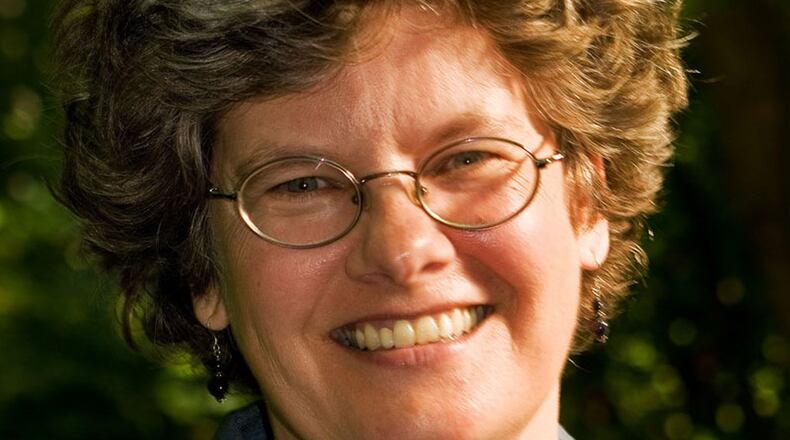“I’m with you, ” Rousmaniere said after recounting similar fears expressed at several meetings she had attended in the previous week.
President-elect Donald Trump earlier this month had a message for his supporters who are harassing minorities: Knock it off.
During an interview on “60 Minutes” on Nov. 13 — his first sit-down interview since his victory against Hillary Clinton — Trump told CBS’ Lesley Stahl that he was “saddened” to hear that Latinos and Muslims are facing harassment.
“I am so saddened to hear that,” Trump said. “And I say, ‘Stop it.’ If it — if it helps, I will say this, and I will say right to the cameras: ‘Stop it.’”
Oxford resident Tomoko Brown, who said she grew up in Japan but has lived in this country for 25 years, was the first to speak at the city council meeting and said she has never been afraid to walk after dark in the city but is now uncertain.
She said she worries about her mixed-race children and her daughter, a high school student, riding the school bus and being outside to meet the bus before daylight in the morning.
“I worry about her safety in front of our house, ” she said. “Living in Oxford is like living inside a big bubble. I wrote an e-mail asking all community leaders to show a united front that no matter what you believe in or who you voted for everyone treat others as you would like to be treated. Without respect for each other, we will not be a society respected around the world.”
Ann Whelpton, who said she has lived in Oxford for 45 years, said she fears the negative national climate is growing.
She said she has heard stories of harassment of minorities outside of Oxford.
She told of a personal experience of hearing a father with his son and a friend in a restaurant loudly talking about rating females and body parts.
“None of this is okay. We cannot allow this to spill into our life. We still have some who do not feel secure and supported. This is an important time for our leaders, ” Whelpton said. “I would like a statement that the community stands in support of all.”
During the "60 Minutes" interview, Stahl told Trump that his supporters had been writing racist slogans or sending degrading messages, particularly in schools. But the Republican also criticized the rash of protests that have broken out since he defeated his Democratic opponent, blaming the media and "professional protesters."
Holli Morrish, the communications director for the Talawanda School District, said district leaders have been talking about the potential for problems. She said they have been using the Teaching Tolerance model to give teachers and administrators tools to deal with problems when they arise.
“It has become clear in the past week we have not prepared enough, ” she said. “We have been told of inappropriate exchanges between students. At a time like this, it is important to set expectations for behavior. We demanded students and faculty respect one another and said there would be consequences if those expectations are not met.”
Fran Jackson, president of the Oxford Branch of the NAACP, said she has been concerned about the social climate in Oxford and urged city council to reaffirm a commitment for equality. She also said it is important to let all residents know the city has a civil rights code under which complaints can be made in cases of discrimination.
Oxford resident Kathy McMahon Klosterman echoed that saying the city needs to find ways to make that vehicle better known.
“As a city, we have a vehicle for complaints but I do not think it is well-known, ” she said. “We need to find ways to make that more overtly known. We do not so much need to teach what not to do, but teach, especially in our schools, what to do. I hope we will all educate ourselves as allies to those marginalized in our society.”
Linda Boardman, a Milford Twp. resident who formerly lived in Oxford, said she was there to represent the PFLAG organization, because she was concerned about what she sees going on across the country.
She said the organization opposes bullying of any citizens and encouraged use of the civil rights code.
City Manager Doug Elliott added a comment later in the meeting that the Community Relations Commission does respond to complaints but cautioned the city’s civil rights code focuses specifically on the areas of employment, housing and public accommodation.
He added the idea, however, that it is important for the community to take the lead in providing an acceptable social climate.
“It is important, as a community, to show what we stand for here, ” he said. “Community is, after all, people.”
David Prytherch, chair of the Oxford Planning Commission, told Council members he is proud to be part of the city’s governance structure and praised the work done by council members, adding that in the current social climate more will be needed.
“I think we need to commit ourselves to working harder and smarter, ” he said. “I hope we can all up our game.”
About the Author
